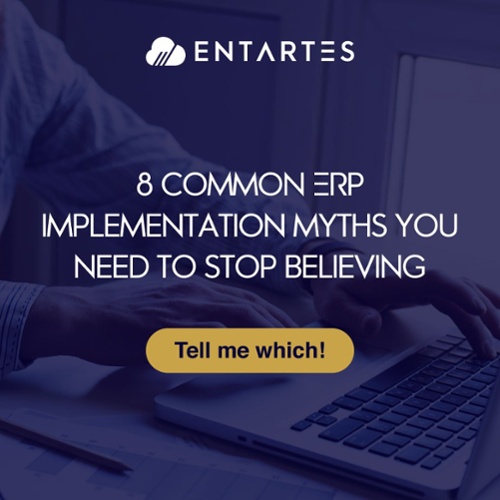Is there a difference between implementing the best ERP software for your business with the...
Key Costs To Budget For A Successful ERP Implementation Process
Our clients usually ask if we can send them a quote with all the expenses involved in an ERP implementation process. We kindly decline.
Why? Price does not determine a successful implementation. There’s no standard pricing plan as each implementation is custom tailored for your medicament needs. Several factors influence the entire experience from beginning to end. Some are dispensable, while others are essential.
Bottom line: it all depends on what you, the buyer, needs for its ERP to integrate smoothly with its business and operation processes. These divergent requirements commonly affect the expense dramatically, WorkWise Software warns.
Breakdown Of Indispensable Factors That Influence Costs
When we help our clients plan their deployment strategy, many fixed and variable factors affect the cost of their implementation.
Fixed Costs
Licensing
Need to run your ERP through the cloud? Only need on-premise? What about both? Our friends at Oracle NetSuite say there are pros and cons to each alternative.
-
Cloud
- Initial costs are lower for cloud ERP systems because they comprise software requirements and connectivity to the system mainly, while the ERP provider hosts and maintains the IT infrastructure for the organization, minimizing demands on time and resources.
-
On-premise
-
On-premises solutions require large upfront and ongoing costs for purchasing and managing the perpetual license fee; there are added costs related to “maintaining the solution’s IT infrastructure with the necessary hardware, servers, and facilities, as well as additional personnel
-
-
Hybrid
Variable Costs
General
- The industry your company belongs in, as some sectors are heavy ERP users compared with others. Wholesale distribution, retail, and manufacturing industries have the highest percentage of employees using an ERP system, Software Path’s 2019 report.
- Size of your business and the number of employees that will use an ERP.
- Company goals and strategy for which you’re installing an ERP, whether it’s to optimize operations or increase production.
- The integration with legacy systems, especially if these are outdated or on-premise.
- If it's first -time or existing ERP system, in case the same ERP is being replaced for a newer version or with different software.
Specific
-
Planning
Any right ERP implementation processes need a plan of foreseen and unexpected stages and costs. It can be done either in-house with or without the help of an implementation consultant or by a third party, preferably, a certified ERP implementation consultant. Columbus Global insists that you should factor in the costs of labor and consultation fees for initial and extra work for both.
This plan should include:
-
The initial cost of configuration
-
Costs of standard modules
-
Costs of customized functionalities
-
Data migration
-
Configuration
-
Installation
-
Coding and testing
-
Going live
If it’s external, both the implementation service vendor and the customer determine the plan design, procedures, and deployment. Make sure not to leave anything to chance as much as possible and to document every agreement.
-
Number of users
This factor must make it into any ERP implementation budget plan. But we prefer to leave it separate as it weighs heavily when budgeting. The number of employees and the level of access they’ll have to the system will influence the deployment expenditures. According to ERP Software Blog, mid-sized companies tend to have a higher budget per user than large companies; the latter benefit from economies of scale.
-
Coding and testing
These highly technical factors typically comprehend:
-
Prototyping
-
Software add-ins
-
Extra applications
-
Additional configurations
-
Upgrades (on-premise or legacy ERP)
-
Going live deployment
-
Post-implementation evaluation and technical support
-
Guidance and counseling
To plan and implement, you need a dedicated team. Everyone should have a specific role in every part of the process. One of the 8 most common myths about ERP implementation is that only IT people should make up the team. And I don't recommend it. It should be a group of expert managers from your ERP vendor or implementation partner, your employees, or a mix.
In this regard, change management is crucial. I cannot stress this enough. No matter who makes your ERP implementation team, they need to have experience in handling rejection and other issues that arise when the system changes.
If the budget allows it, include someone on your team who is solely dedicated to managing change, Columbus Global suggests.
For NetSuite, any ERP implementation plan should include a specific chapter for change management that provides analysis; role assessment; communication; workforce enablement; and training.
4 Tips For Managing Your ERP Implementation Costs
I’ve gathered a few best practices we always like to give our customers to keep when planning their ERP implementation process from start to end.
- Plan as much as possible. The ERP vendor or implementation consultant and the buyer sit down to map the road ahead, including potentially unexpected costs. This exercise helps the first understand its clients’ needs and requirements, technical capabilities, and the second to comprehend the situation's scale.
- As a rule of thumb, our partners at Oracle NetSuite always recommend budgeting for at least one percent of the organization’s operating budget when planning the entire process.
- Using your people to staff the ERP implementation team is cost-effective if they have the necessary knowledge and skills. If not, you’ll have to consider training costs.
- Logistics for on-premises implementations require infrastructure and maintenance costs. Cloud ERP deployment skips some of these ordinary expenses typically as the solution provider manages the infrastructure, NetSuite says.
4 Key Takeaways From This Blog
-
Downloading and starting to use an ERP after purchase from day one does not happen.
-
The implementation process is influenced by several variables that differ significantly from one company to another, costing time and money.
-
Any deployment strategy will include essential and expendable factors and costs, depending on the company size and requirements.
-
A fair ERP implementation process requires hiring the right consultant or partner, a decision that requires as much planning as budgeting the software deployment itself.




%20copy-1.png?height=200&name=AdobeStock_422070550(crop)%20copy-1.png)

Blog Comments